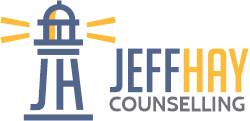My Approach to Counselling
Like a thriving garden, I work from the vantage point that all relationships need constant attention, intention, and work. Relationships will have high points and low points, times when connection is easy, passion is alive, and love abounds, but also in times when trust is broken, regrettable incidents linger, and friendship is barely possible.
I believe that we all think and behave from a culmination of our past experiences: the joys, hurts, shame, losses, and triumphs. When we are hurting, we tend to inadvertently (or intentionally) hurt those we love most.
I am passionate about supporting people who are struggling in their relationships. I want to hit pause and slow things down. Slowing allows you to explore and deepen your understanding of YOU. How are you showing up to this relationship? How are you showing up in the key moments?

I’m fine, but can’t you just fix him/her?
Yes, I know. Part of you wants a referee or judge, a witness to how awful and frustrating your partner really is. I know your partner does this and forgets that, but my job isn’t to sit and prescribe, “you do more of this!”, and “you need to stop doing that!”. I want to move you past pleading your case with exhibit A to Z. Your relationship is my client. I want to work on getting you past that to better true connection.

To borrow from Sue Johnson’s Emotion Focused Couples Therapy work with attachment, there is a simple question being asked daily, even hourly, in all relationships, “Are you there for me? Will you come when I call?” That is what true connection is all about. I want to get you there.
If Brené Brown is right in that we can only “love another to the degree to which we love ourselves”, then we may need to open up your own schematics and have a peek. Your personal view shapes the way you give and receive love.
I think Robyn D’Angelo, an expert couples counsellor I met at a Couples Conference in LA, says it best: “When you better understand your own story, you create space and grace to be curious about your partner’s story as well.”
Being solution focused, I want to focus on the future, but one cannot ignore, and must explore our family of origin to better understand our well ingrained relationship patterns. We all have stories. Those stories shape the way we view the world and how we interact with those in it. Perhaps that is where we can begin…
